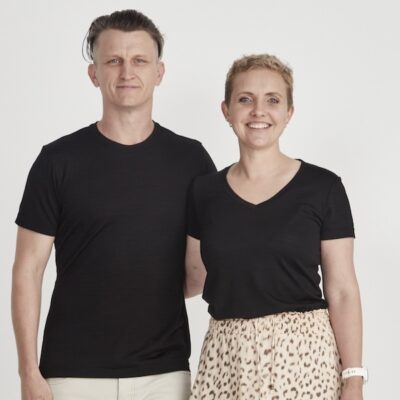Demand driven
As new start-up LazyAz delivers its ‘on demand services’, the next evolution in online…
As new start-up LazyAz delivers its ‘on demand services’, the next evolution in online shopping gets underway in New Zealand. Kevin Kevany has been checking it out.
What would make an 18-year-old Auckland achiever turn his back on a prestigious Harvard University engineering degree to pursue his business dream in New Zealand?
And why would the young man who wrote the reference supporting his application immediately become an investor in that company too?
Aryaman Taore, a graduate from Botany Down Secondary College in Auckland, is still committed to an engineering degree (focused on renewable energy), and is currently in his first-year at Auckland University. But right now he is growing his exciting start-up-with-a-difference, LazyAz, as fast as he and his team can grow it.
Tosswell ‘Toss’ Grumley, the author of Aryaman’s Harvard reference, is better known as the brains behind e-commerce specialists Wolf & Fox Consulting, masters of the ins-and-outs of this rapidly growing market; of how best to rapidly gain market share; and be profitable as soon as possible.
“We are already seeing signs of profitability,” reports Aryaman, “which is rare for a technology start-up. But I think our combination of people (our deliverers) coupled with technology allows us to create a profitable and sustainable business.
“Over time, we plan to exploit other revenue sources – for example, commission on the sales we bring our partners; along with using our platform for stores to feature paid-promotions; and the interest we make on our total revenue (which includes both delivery plus product cost) since we buy goods on credit.
“By being flexible and looking into different ways of doing things, we have been able to drive down our delivery costs and will continue to ensure we do so, while making the service available to a mass-market – all the while maintaining profitability.”
‘Burger-fuelled’
An unsatisfied craving for a burger one night sparked the idea for LazyAz. Aryaman spent the next two months researching the market and looking at all existing services.
“It was clear an ‘on-demand’ delivery service didn’t exist in Asia and the Pacific. This was the moment to create one. An early mistake was thinking of ourselves as a courier company, rather than a modern ‘on-demand service’. We wasted time targeting offices needing documents delivered; that sort of thing. Time to regroup.”
Armed with his savings of $1,000 and his parent’s contribution of $700, the first draft IOS app was developed, so he could showcase the operation to investors. On cue, a local daily ran an article featuring LazyAz and Aryaman. About ten would-be investors were on the phone or emailing him by day’s-end. One of those would-be investors was Toss Grumley.
“Aryaman is the epitome of a big thinker,” says Toss. “He is constantly looking outside the box for new and intelligent solutions. His ability to communicate his ideas clearly and succinctly is unrivalled by any businessperson I have previously dealt with. I left our first meeting feeling inspired, and continue to be filled with confidence, motivation and excitement every time we meet,” he says.
Aryaman says he has been fortunate to learn a lot from his parents, who run their own chain of botox clinics. “By sitting in on their business meetings and being involved in their business discussions I’ve gained a grounding on managing people and a knowledge on how to scale a business.
“Plus, Toss has always provided significant business expertise and knowledge, especially as he runs his own wide-ranging e-commerce business interests very successfully. I’ve been lucky to have him as an investor too, as he trusts my ability to make decisions and execute operations.
“Already we are more than just a food-delivery company,” says Aryaman. “We are driving to ensure everything is ‘on demand’ – from a jacket to a phone, to your groceries.
“LazyAz is working towards creating an ‘ecosystem’ for ‘on demand e-commerce’, which we believe is the next step in online shopping.
“We believe we’ve created a completely new market of ‘on-demand e-commerce’ and are still cheaper than traditional delivery companies. That’s the perfect combination,”
“Our service finally allows local shops to get a real online presence too. We bring what has attracted your attention on the TV or computer screen to your front-door. Food, for us, is what books were initially for Amazon. It’s our way of making ourselves known in the market. We want to transition into having everything ‘on demand’.”
“We believe we’ve created a completely new market of ‘on-demand e-commerce’ and are still cheaper than traditional delivery companies. That’s the perfect combination,” adds Toss.
“It’s hard to replicate our model. ‘On demand’ delivery is a tough market to crack, especially for $7. We’ve been able to achieve that. We have the advantage of being early movers making it more difficult for new entrants to break in.”
Commission based
The company’s model sees the bulk of earnings come from commission charged on the sale, rather than the delivery bill. Currently, even where a customer has already purchased a product, and LazyAz only needs to collect it and deliver it, they only charge the delivery fee.
“This would definitely be a break-even proposition for us,” says Aryaman. “But we would still agree to do it; looking to the long-term where that customer would get to know us and learn to purchase products through our app.
“We are looking to use larger vehicles, so heavier items can be delivered. We would ensure customers order these items from us and pay through our app, so we can charge the three-percent.”
The Auckland CBD with its high-density is the current focus of operations. As the delivery area expands to include the entire city, customers will still only be permitted to order, via the app, from stores a maximum of five kilometres from their delivery address.
“This range allows us to create a profitable service and meet the one-hour commitment,” explains Aryaman. “We will start expanding nationally from January 2017, covering the CBD areas of cities, and then expanding into residential areas.
“We will take time to perfect the model and make it profitable in New Zealand, before looking towards Asia and Australia. Cities such as Tokyo have no prominent food-delivery service, let alone an on-demand service like ours – we want to be first to penetrate such markets.”
With a round of crowd funding to begin soon on Alphacrowd, the young entrepreneurs look set to take their ‘on-demand’ services global.
You wouldn’t bet against it happening.






